All The Ways Cars Harm The World
We are huge electric vehicle fans and have written many, many, many articles about why we love them in our series, Decarbonize Your Life. But cars, even electric ones, are harmful to people and communities. The psychologist Carl Jung said everything has a “shadow” or dark side, and in this article we explore the big-time shadow of the ubiquitous automobile to tee up upcoming articles on mass transit, trains, and active transportation.
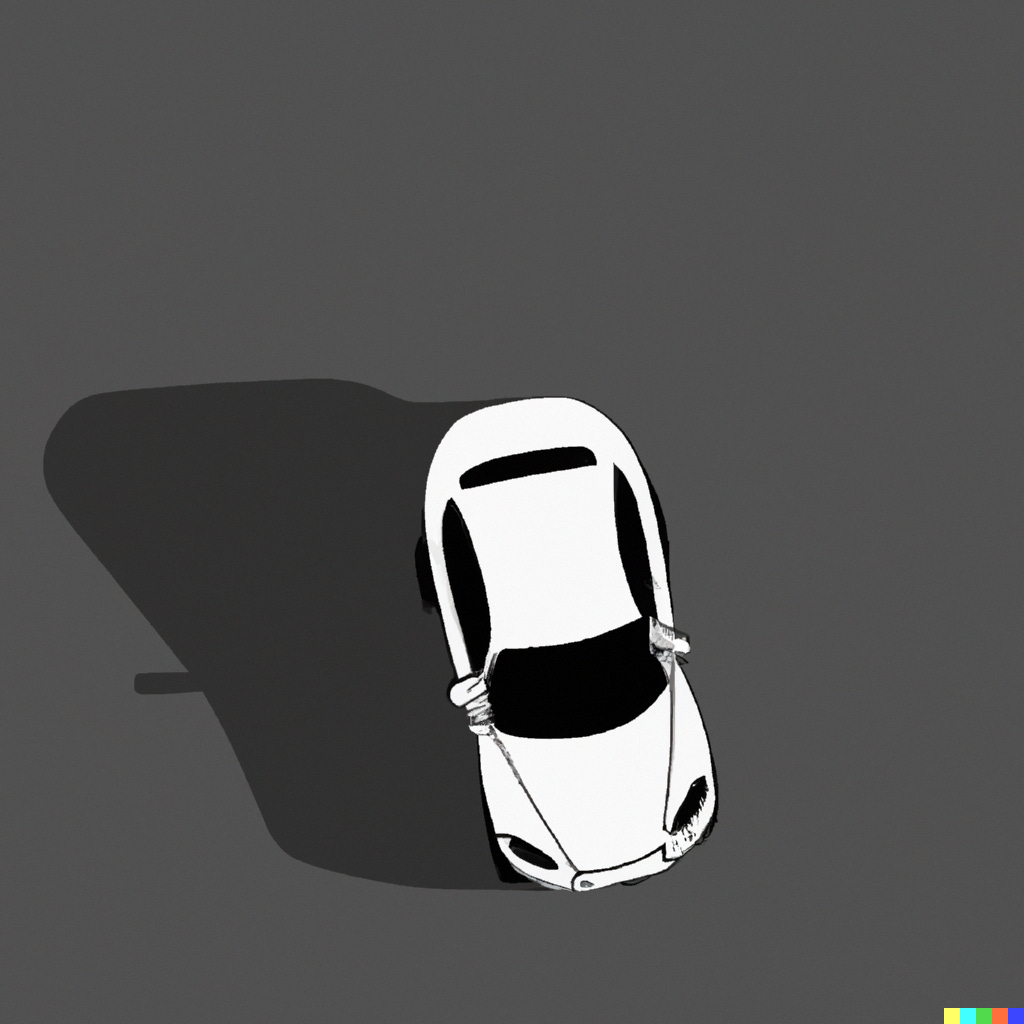
This shadow is also known as car harm, a term that characterizes the immense toll that cars have on people and our planet. Cars have emptied our cities, injured our children (they are the #1 cause of death worldwide), warmed our planet, polluted our lungs, and robbed us blind (with the average car costing over $600,000 over its lifetime and society paying half that cost). Their “convenience” in many ways is ultimately an illusion, because communities built around cars compel people to travel further, spending more of their lives in cars. Despite all this, most of us remain heavily dependent on cars because cars are so interwoven into our lives that we can’t see their harm, let alone break free.
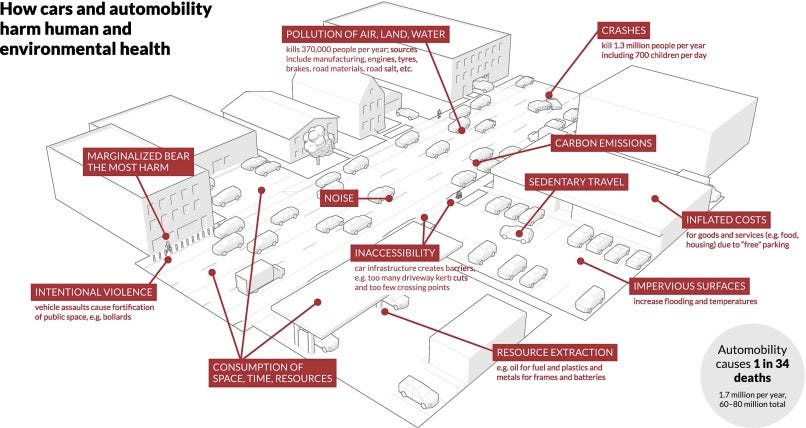
Cars Harm Communities
Once upon a time, American cities and towns were thriving, lively places. In these golden days before the auto, people lived in dense communities that were walkable and accessible by transit, even suburbs grew along streetcar lines. The average big-city density was 7,500 people per square mile in 1950.

Post-World War II, policies to promote homeownership encouraged sprawl, entrenched racism led people to flee cities as African Americans moved north in the Great Migration, and the Interstate highway system became the country’s largest infrastructure project. As a result, Americans were incentivized and proceeded to buy a lot of cars. We now have the second highest rate of car ownership (behind Monaco) in the world, 4 times the worldwide average. Cities sprawled and depopulated, and now only 12 of the 50 largest US cities have the same average density of American cities in the 1950s.
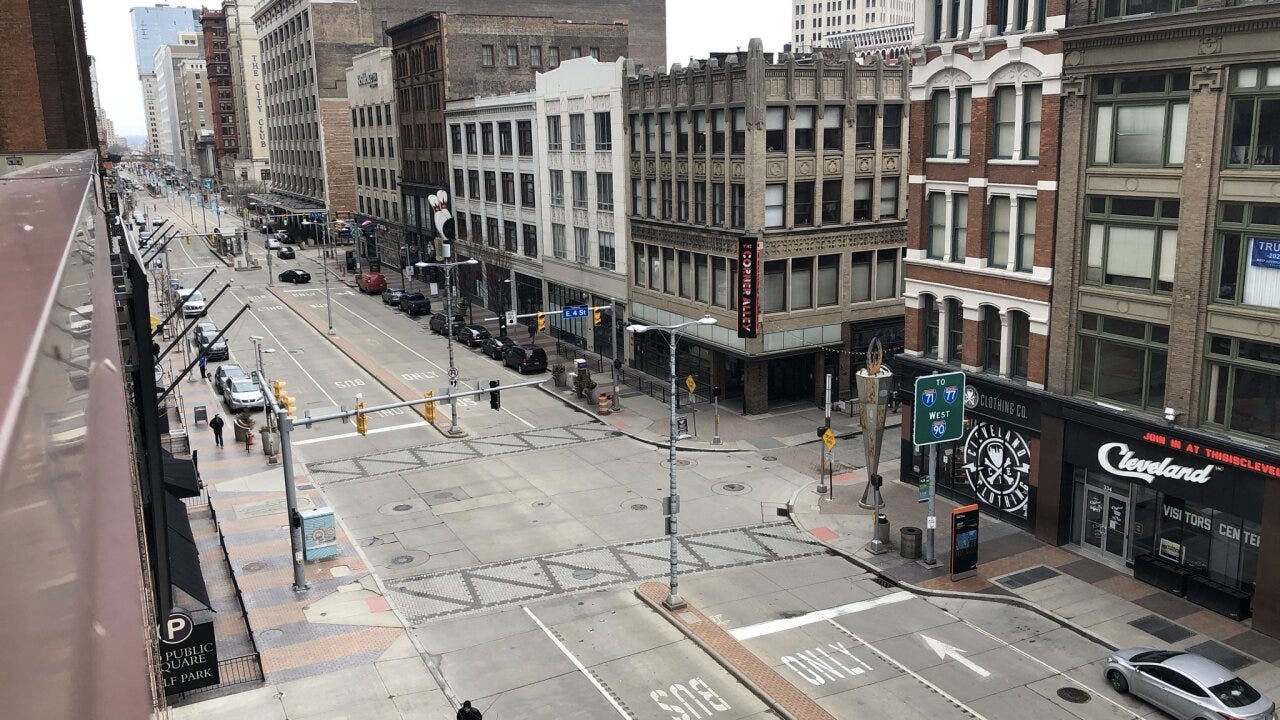
Most people no longer walk to meet their daily needs, losing out on connections with neighbors and physical exercise. Instead, we spend an average hour a day driving. Interestingly, average commute times of 30 minutes have not changed, meaning the car doesn’t reduce our time traveling, it just extends the distance we travel.
Cars Cost a Lot of Money
According to AAA, the average annual cost of car ownership is $12,182, which is 16% of the US median household income. This is the second largest household expense after housing.
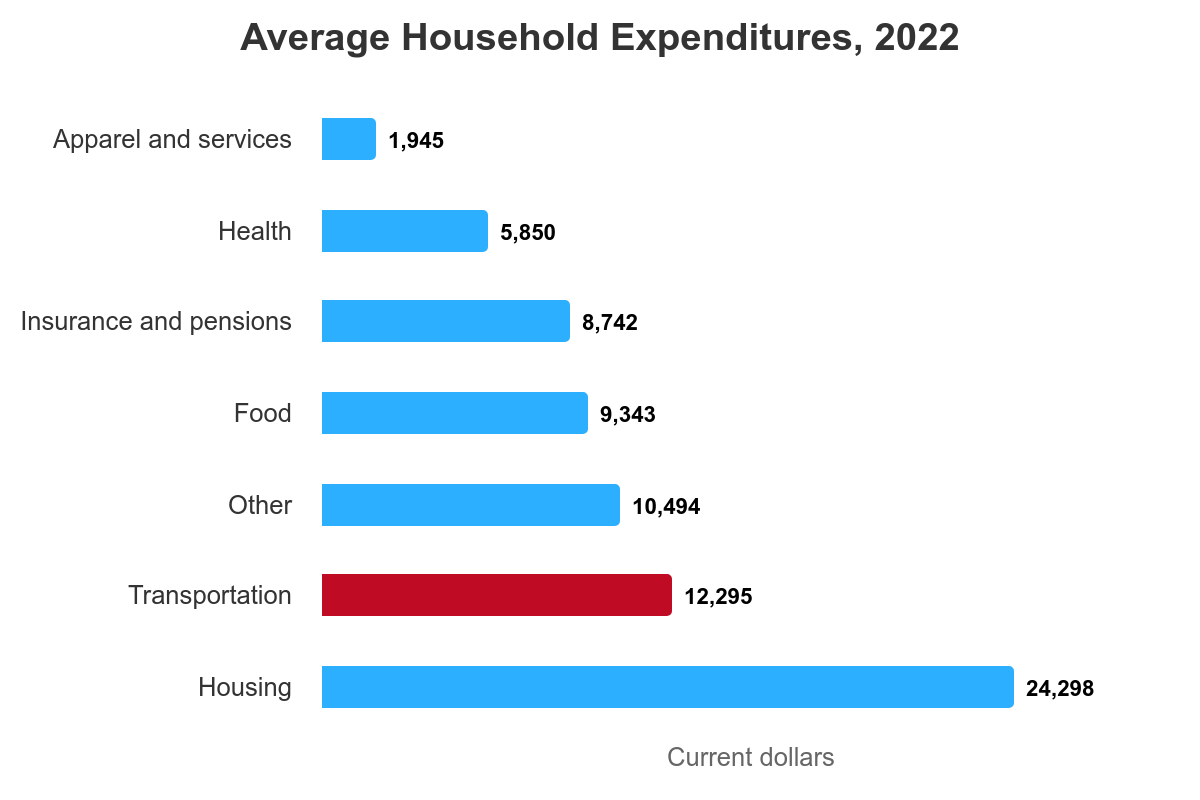
Compare that to households of all incomes that don’t have a car, which only spend 5% of their income on transportation. Incredibly, car owners with the lowest incomes (right table below) spend nearly half their income on transportation.
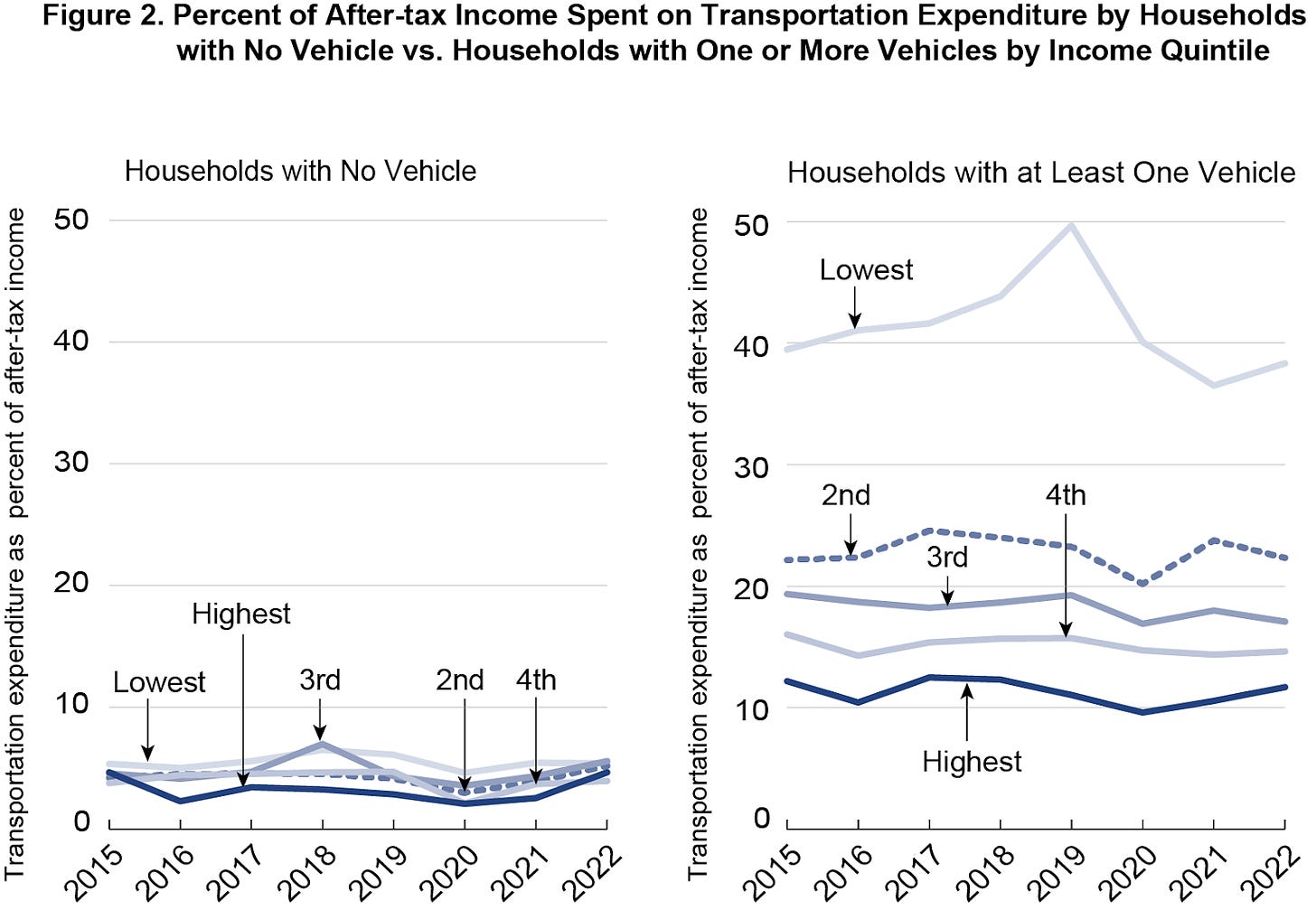
Our family spends approximately $5,300 on our car annually ($1,900 in insurance, $300 in fueling, $500 in repairs, $2,600 in depreciation). Limiting ourselves to just one car and driving electric saves a lot of money, but costs are still significant.
And cars don’t just cost individuals a lot of money, they cost society boatloads. We subsidize car use at a staggering level with spending on road maintenance, highway construction, ambulance services for car accidents, and “free” parking which takes up valuable real estate and ultimately makes housing and consumer goods more expensive (each parking space costs $1,750 to build and $400 annually to maintain). As a Vice article on the topic says, “even if you don’t own a car and never drive, you’re paying for other people’s cars — in rent as well as in health, social, and environmental costs.” An Ecological Economics report found that a small car in Germany cost $641,000 over its lifetime and that society subsidizes about 41% of that cost.

Cars Harm Our Climate
Vehicles account for 28% of CO2 emissions, the largest share of any sector, according to the EPA. New York City, with its lowest rates of car ownership and highest use of transit in the US, also has the lowest rates of carbon emissions, as New Yorkers produce ⅓ the greenhouse gas emissions as other Americans.

Of course, EVs help address greenhouse gas emissions, but New York City shows that one of the quickest ways to reduce your air pollution is to live somewhere where you rely less on the car. Plus, EVs do not avoid “material abrasion” pollution which are the microplastics and metals that are shed from cars while driving and that also harm our environment.
Cars Harm Our Health
Vehicle use correlates “in the 99-percent range” to obesity rates as does the related urban sprawl. An analysis of many studies show that “reductions in driving could provide significant population health benefits.”
Transportation also produces a lot of local air pollution, accounting for approximately 45% of US NOx emissions. NOx damages the human respiratory system and is associated with “premature death, decreased lung function growth in children and emergency room visits for asthma.”

Car accidents are also a significant health and safety risk which most of us choose not to think too much about. They are the leading cause of death for children and young people (5–29 years of age) according to the CDC and the eighth leading cause of death globally for all age groups. A recent report finds we’ve become so used to this form of car violence that “it is socially constructed as normal, accidental, or inevitable.” Total deaths caused by cars have now matched the deaths from WW2. Joe, like many of us, has first hand experience with this — his sister died in a car crash when she was just 22.

Cars harm our planet, our bodies, our communities, and our bank accounts. They cast an enormous shadow that most of us take for granted, as we remain heavily dependent on them. How can we reduce our car dependance and improve our lives and communities? Our next post dives into the first obvious tool to fight back against the destructive hegemony of the auto: smelly, inconvenient, and glorious mass transit.
 This article is part of a series called Decarbonize Your Life. With modest steps and reasonable costs our family has dramatically reduced emissions and is sequestering what remains through a small reforestation project. Our life is better for it. If we can do it, you can too.
This article is part of a series called Decarbonize Your Life. With modest steps and reasonable costs our family has dramatically reduced emissions and is sequestering what remains through a small reforestation project. Our life is better for it. If we can do it, you can too.
Have a tip for CleanTechnica? Want to advertise? Want to suggest a guest for our CleanTech Talk podcast? Contact us here.
Latest CleanTechnica.TV Videos

CleanTechnica uses affiliate links. See our policy here.

